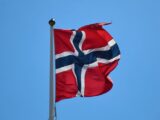Hryhoriy Mesezhnikov: soon it will be clear whether Slovakia will change its foreign policy course
03.10.2023
Hryhoriy Mesezhnikov
In Slovakia, early parliamentary elections are over. Newssky asked the president of the Institute of Public Affairs in Slovakia, Hryhoriy Mesezhnikov, about the results and prospects of such a choice.
Parliamentary elections were held in Slovakia at the end of last week. Having gained 23% of the vote, the Smer-SD party led by Robert Fico, a politician who has already served as prime minister three times, is remembered as someone formerly had plunged Slovakia into a quagmire of corruption, clientele, and authoritarian politics.
The Progressive Slovakia party, a pro-Western liberal-centrist formation whose leader, Michal Symecka, a member of the European Parliament, is considered the rising star of the Slovak political sky, lagged behind Smer-SD by five percent. He, however, will have to wait a few more years for his truly stellar time, as the circumstances resulting from the elections favor the return to power of Robert Fico.
The Hlas-SD party, which came third with 15% and is led by another former Prime Minister Peter Pellegrini, is gravitating toward a government coalition with Smer-SD. The people who founded Hlas-SD in 2020 are connected to Robert Fico’s party by political and spiritual kinship, as well as through close personal relationships. To form a majority in the parliament of the Smer-SD – Hlas-SD coalition, a third partner is needed, and this role will most likely and very willingly be played by the radical-nationalist Slovak National Party (SNS), which entered the parliament with 5%, the weakest result, but enough to play along with the Fico-Pellegrini tandem.
During the election campaign, Robert Fico promised political revenge on the opposition, civil society, and independent mass media. This comes in addition to fears that the return to power of the head of Smer-SD, a man vindictive and malicious by nature, could be the beginning of a sharp political and civil confrontation. Unfortunately, there has also been concern that Slovakia may move away from the pro-Western course in its foreign policy and change it to the one followed for several years by another Central European country that is a member of the European Union and NATO—Hungary.
The fact is that Robert Fico built part of his election campaign on the refusal to help Ukraine (primarily by supplying weapons), on blocking its movement towards the European Union and NATO, on proposals to renew normal relations with Russia, the aggressor country. Such ideas cause well-founded concern among Slovakia’s Western allies.
There is no doubt that in the event of the formation of a new government, the new prime minister will try to start implementing his program on all points, particularly in the part of refusing to transfer weapons to Ukraine. Most recently, he spoke loudly about this at pre-election events, and his pro-Russian voters surely remembered these speeches. Although Slovakia has already transferred most of its strategic military potential to Ukraine (these include S-300 air defense systems, MIG-29 fighters, long-range howitzers, armored vehicles, and ammunition), the implementation of arms production projects for Ukraine Slovakia continues. These projects are sponsored by Western allies. Slovak defense enterprises, for example, are now producing self-propelled artillery systems purchased at the expense of Western allies.
Soon, it will become clear whether the authoritarian national populist who returned to power in Slovakia will be able to reverse the country’s pro-Western and pro-Ukrainian foreign policy course, or whether pressure from Western allies and resistance from the democratic part of Slovak society will force him to reconsider his dubious intentions.
 Maryna Kovalchuk, Newssky’s own correspondent (Slovakia, Czech Republic, Hungary, Poland), head of the V5 Media project, and deputy editor-in-chief, contributed
Maryna Kovalchuk, Newssky’s own correspondent (Slovakia, Czech Republic, Hungary, Poland), head of the V5 Media project, and deputy editor-in-chief, contributed

